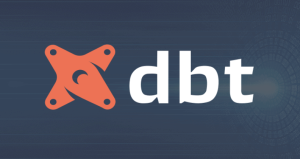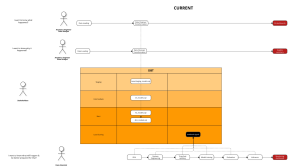Due to the recent growth and advancement in modern technology, data-driven decision making has become a crucial part and parcel of most businesses. Data-driven decision making entails making decisions that are backed up by hard data rather than making decisions which are only based on observation. It is applied in various fields such as health care or medicine, the manufacturing industries, and in the transportation industry.
The process of data-driven decision making is also known as data-based decision management. The idea of data-driven decision making that every decision regarding data should be generalized from the main information sets that show their effectiveness and performance.
The Scope of Data-Driven Decision Making
Data-driven decision making is the practice where data is collected, analyzed, and decisions are made based on the insights which are derived from the collected information.
The process is more objective and can be quickly evaluated according to the influence of the data on metrics.
Data-driven decision management is crucial for every manufacturing industry. It helps the management to plan to see what will speed the production to save time.
Data based decision also helps to use past information to predict what is to happen in the future. Without data, there are a lot of risks, such as performing on false assumptions and being swayed by biases. The approach can be used by big businesses for big data analysis diagnostic modeling, and processing to enhance excellent performance.
The success of data-based decision making depends on various factors. For example, the method that is used for data collection and the quality of the data. Data based decision management is heavily quantitative. It requires powerful and enough machines which are capable of computing and analyzing the big sets of data in the most efficient way.
Advantages of Data-Driven Decision Making
1. Leads to Greater Transparency and Accountability
One of the main benefits of data-driven decision-making approach is that it leads to improved transparency and accountability to every organization. The strategy works to improve teamwork and staff engagement.
The policies of the practice help the organization to deal with its threats and risks and thus enhances its overall performance. Also, it promotes the morale of the employees as the data-driven decision management helps them to see the objective of data backs ups. It also leads to making the right decisions regarding their daily activities.
Objective data helps most organizations to collect data, use it for record keeping and compliance. This makes the organization to be accountable to manage its data properly. For transparency, data driven decision making ensures every information prioritized, the goals are concrete, and the overall results are measured accordingly.
2. Continuous Improvement
Another advantage of data-based decision management is that it leads to constant improvement. Most of the organizations are capable of implementing incremental changes, monitor vital metrics, and make further changes based on the outcome of data-based decision management. This enhances the overall performance and efficiency of a business organization.
Also, this approach is essential as it helps in making decisions based on facts, it does not depend on the knowledge level or skills of the leaders. It is efficient in creating a higher capacity to scale changes which are potential for any rapid implementation.
3. It Ties Business Decisions to Analytics Insights
Data- based decision management plays a vital role in every business. The approach helps the entrepreneurs to mine data, saving time to end up with useful insights. A precise analytical objective helps to solve some problems for the business, making it have powerful performance and predictive insights.
Data based decision making gives a place for the firms to gauge themselves, to test different strategies to see what is truly useful for its audience and customers.
Also, when the organization decisions are based on data and facts, it dramatically increases the speed of decision making. By the use of real-time data, the past data patterns, the decision making process becomes fast, reliable as the organization can make confident decisions.
4. Provide a Clear Feedback for Market Research
Another advantage of data-driven decision-making approach is that it helps to get feedback. It helps to research on what is supposed to be used and what is not. This helps the organization to be able to formulate new products, reliable services, and come up with new workplace initiatives. Also, the practice helps to identify the trends even before they occur. By investigating the historical data, it enables the company to know what to expect in the coming future and what to change for better performance. The approach helps the business enterprise to search for understanding on how to maintain a good relationship with their customers and encourage them when changes arise such as new product introduction, services or business development to move their brand forward.
5. It Enhances Consistency
The benefit of having data- based driven organization is that you have consistency over time. The approach helps people within the organization to know how decisions are made. People can identify the implications of data that is being collected, analyzed, and managed, and they take actions accordingly. When every individual are involved in data-driven decision management, they acquire the necessary skills, and thus the consistency is improved. Practice plays a vital role in every business. They can know if the sales are up or down if their customers are happy or not and what is working for the company and other departments. This brings awareness, which helps the organization build loyalty, engagement, and responsibility.
Source: softjourn
About JOON SOLUTIONS
Joon Solutions was founded with the Vision of providing unparalleled experience, thought leadership, and toolsets to help clients launch into the 4th industrial revolution. We specialize in helping clients select, implement and manage organizational changes related to their data and IT infrastructure. More than products, we have solutions.
- Joon Solutions Achieves the Data Analytics Partner Specialization in Google Cloud Partner Advantage Program - May 27, 2022
- Top 5 Digital Transformation Trends in 2021 and Beyond - September 21, 2021
- 6 Biggest Data Strategy Mistakes Every Company Must Avoid - September 13, 2021



